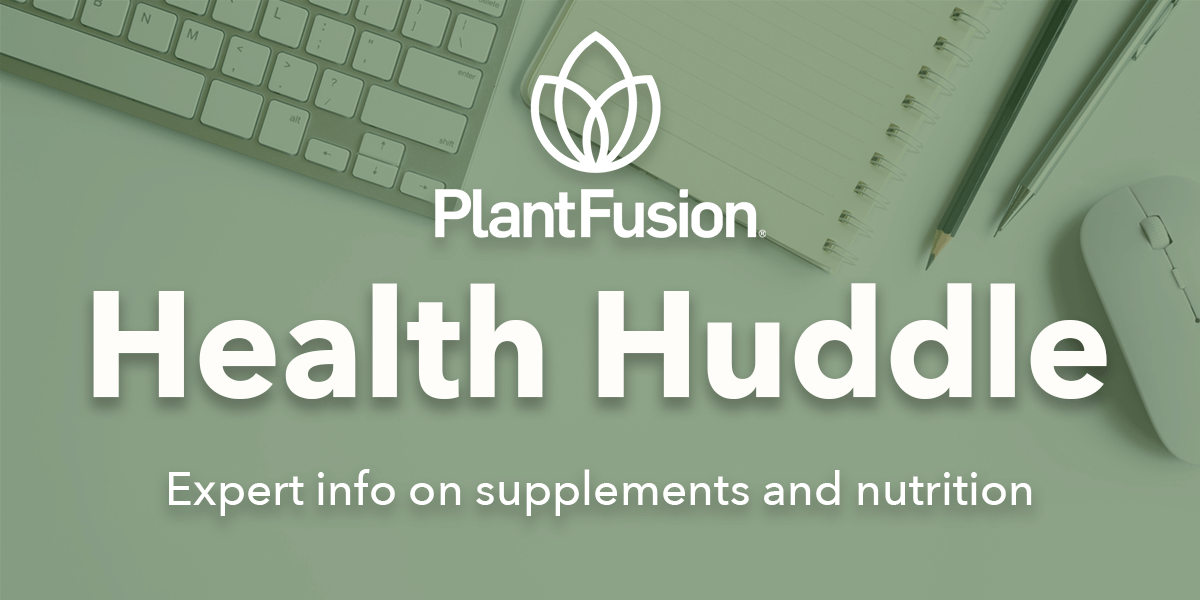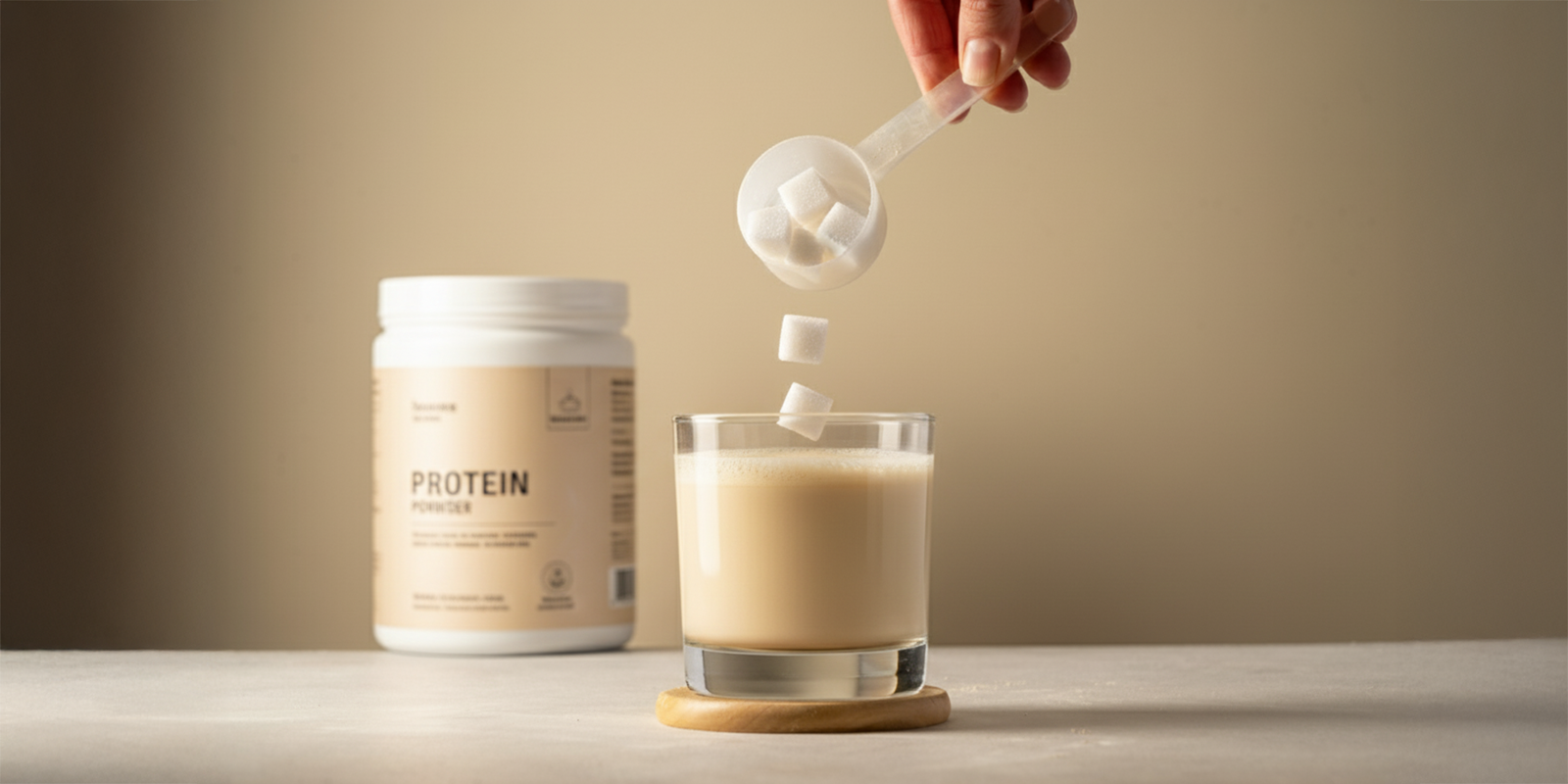If you’ve ever felt bloated, gassy or had a stomach ache after drinking a protein shake, you’re not alone, and you’re not imagining it. The reality is that not all protein powders are created equal, and a surprisingly large number of them on the market are secretly fighting against your digestion rather than working with it.
Let’s dissect what actually causes the bloating, what your body might be seemingly telling you, and how to select a protein that helps you with your health goals — not hinders them.
Why Does Protein Powder Make You Bloated?
Inferior or Low-Quality Ingredients & Fillers
A vast list of “mysterious” ingredients is often a warning sign. A lot of protein powders use inexpensive thickeners, sweeteners and fillers like inulin, carrageenan, gums or sugar alcohols, which can be hard to digest or just plain overwhelm your digestive system. These are not always easy to identify — and that’s especially true when the evidence is hidden in fine print, or packaged under names that sound “natural.”
The result? Maybe you’re actually consuming more additives than nutrition — and your digestive tract is paying the price.
Incomplete or Imbalanced Sources of Protein
One of the biggest myths is that protein is protein is protein. It’s not. Proteins that are incomplete (missing one or more of the nine essential amino acids) may be more difficult for your body to absorb and use. That inefficiency can result in fermentation in your gut (not fermented sources of protein.. we love those!) — or in other words, gas, bloating, and cramping.
Milk Proteins or Dairy Proteins
Even if you’re not technically lactose intolerant, dairy proteins can be problematic. Whey and casein — the two most popular arterially corroded animal proteins — have a way of making people feel bloated, foggy and dull. That’s because dairy can be inflammatory, if your body has problems breaking it down.
“Lactose-free” doesn’t necessarily mean symptom-free.
Lack of Digestive Enzymes
Here’s where it gets really intriguing: Even high-quality proteins can contribute to bloating if your body isn’t able to break them down properly. There’s a lot of complexity to protein — it has to be broken down. When you don’t have the right enzymes (i.e. protease or bromelain), your body is more challenged to digest all the goods and can result in the leftovers being fermented… hello bloat.
Decoding Your Symptoms: What Is Your Gut Trying to Tell You?
Bloating or gas is often linked to hard-to-digest ingredients like inulin, sugar alcohols, dairy proteins, or simply poor overall digestion of the shake’s contents.
Cramping or discomfort can indicate protein overload or an incomplete amino acid profile that your body struggles to utilize efficiently.
Brain fog or fatigue may be tied tohidden food sensitivities or nutrients that aren’t being absorbed properly — even if the label looks clean.
Skin breakouts or puffiness are often inflammatory responses to triggers like dairy or soy, even in small amounts.
If you relate to one or more of these, it might be time to start examining your protein powder a little more closely — and what you’re doing to your body as a result.
What to Consider When Choosing a Gut-Friendly Protein Powder
When it comes to picking protein, it’s not just about muscle, it’s about feeling good everywhere. Here’s what to prioritize:
✓ Clean, Clear Ingredient List
Seek out minimal, whole food-based ingredients you know how to pronounce. Avoid any artificial sugar, substitutes, and artificial flavors. Your gut doesn’t want to translate a science experiment.
✓ Complete Amino Acid Profile
Proteins that combine multiple plant sources (like peas, artichokes, and algae) deliver a more complete balance of amino acids — which will be easier to absorb and more effective for recovery and repair.
✓ Digestive Enzyme Support
With added enzymes (like bromelain and alpha-galactosidase) the protein in formulas is easily and comfortably digested. (That’s the difference between sustenance and bloat.)
✓ Free from Dairy, Soy, and Common Allergens
Even minuscule levels of those ingredients can cause inflammation or irritation. Allergen-free options are better for not only digestion, but also for your health in general.
Why PlantFusion Protein Powder Doesn’t Cause Bloating
At PlantFusion, we saw how common post-shake bloating was — and we set out to solve it. Our protein powders are engineered from the ground up with digestion and performance in mind. Here’s how we’re different:
● Fermented, Plant-Based Proteins
Fermentation pre-digests compounds that are difficult to digest before they reach your stomach. Which means better absorption and less digestive discomfort.
● Thoughtfully Sourced Amino Acids
We combine 5 sources of plant protein to provide a complete and balanced source of essential amino acids, that your body needs for effective performance, plus accommodate your digestive health.
● Proprietary Digestive Enzyme Blend
Our special blend of enzymes is included with every serving to help break down protein and alleviate gas, discomfort and bloating*
● Free From the Usual Triggers
No dairy. No soy. No gluten. No gums.No artificial anything. Just clean, simple nutrition your body can use.
Final Takeaway: Listen to Your Gut
If your protein shake leaves you feeling worse instead of better, that’s your body asking for change. Bloating isn’t just a side affect, it’s a signal something might need to change. And with the right formula, the bloat can be completely avoidable.
PlantFusion protein powders were created for people who want complete nutrition without the side effects. No bloat. Just clean, effective plant-based protein that supports your goals and your gut.
PlantFusion's Complete Protein
21g of the world’s best tasting plant-based, vegan protein powder that sustains energy, builds and repairs muscle, and is easy to digest.















